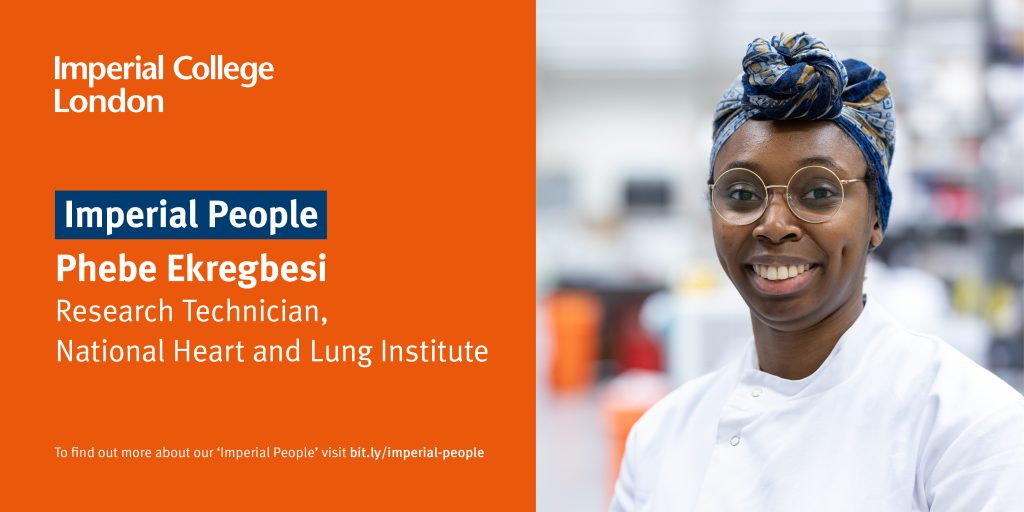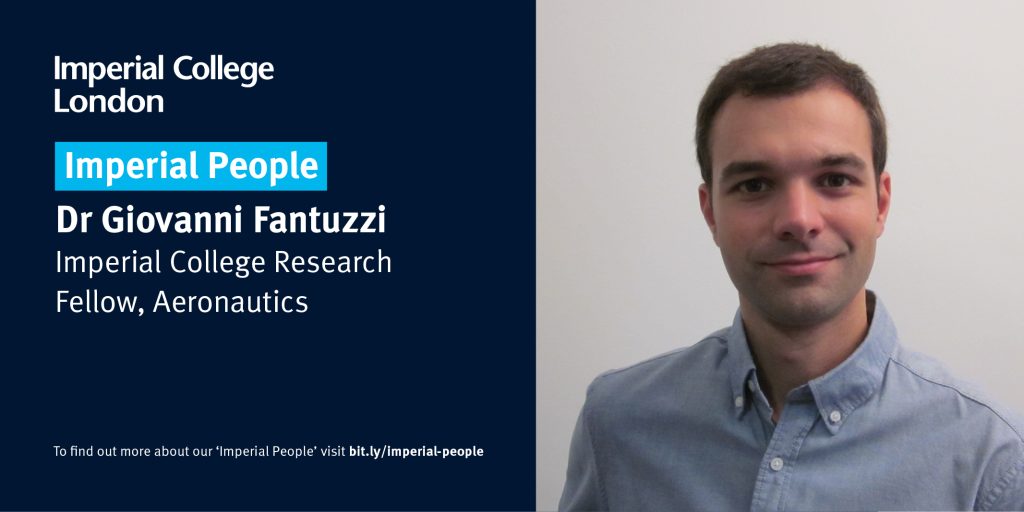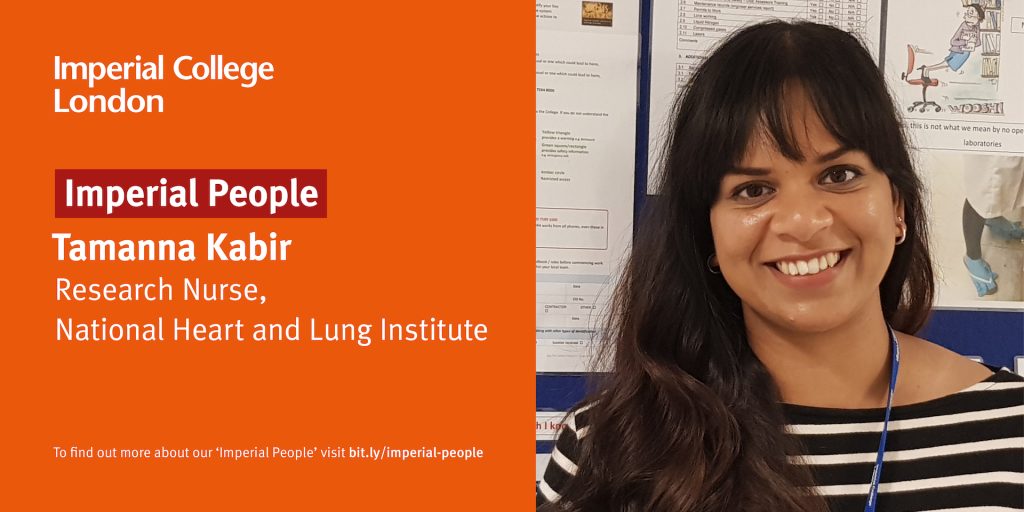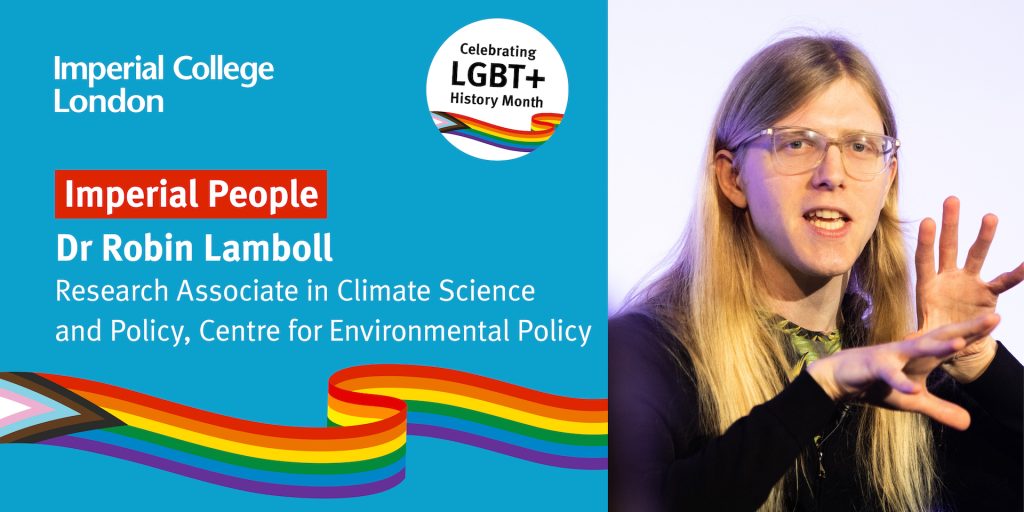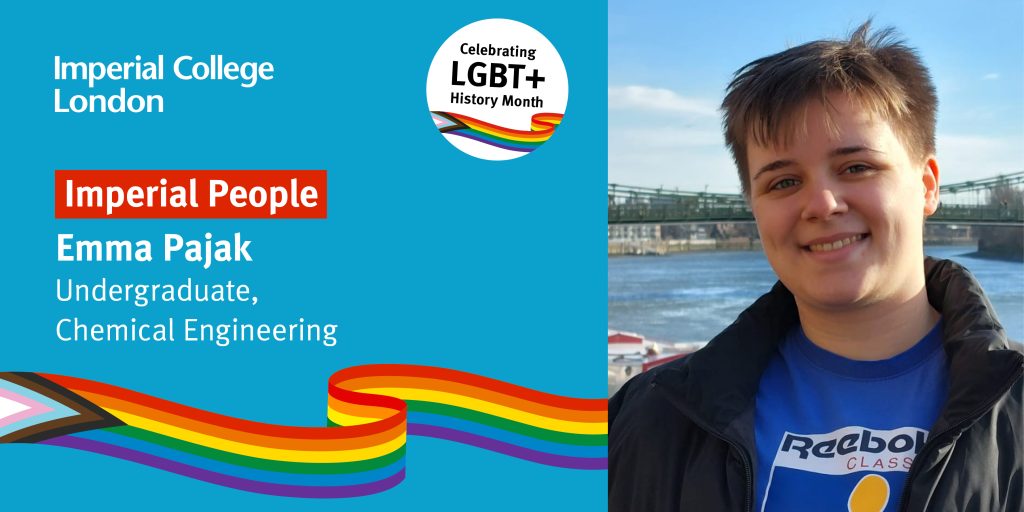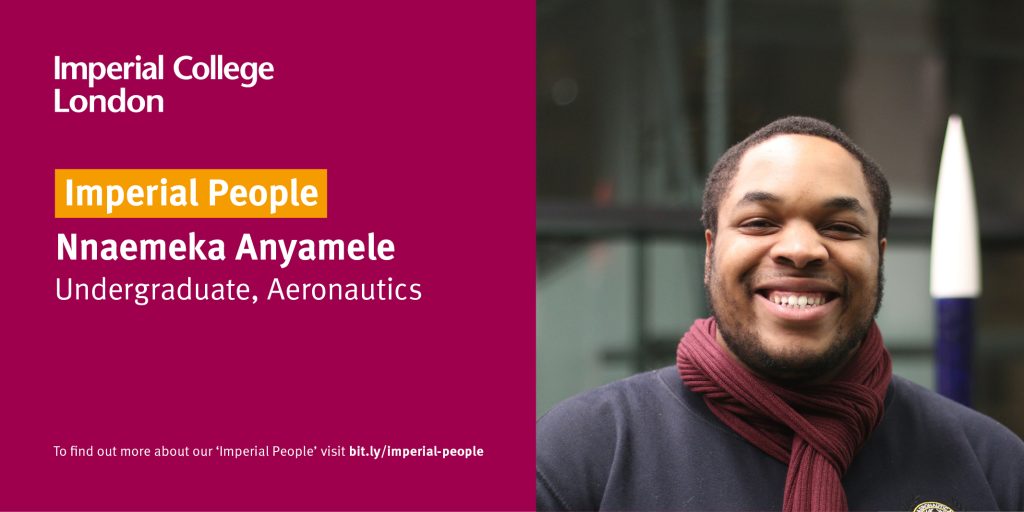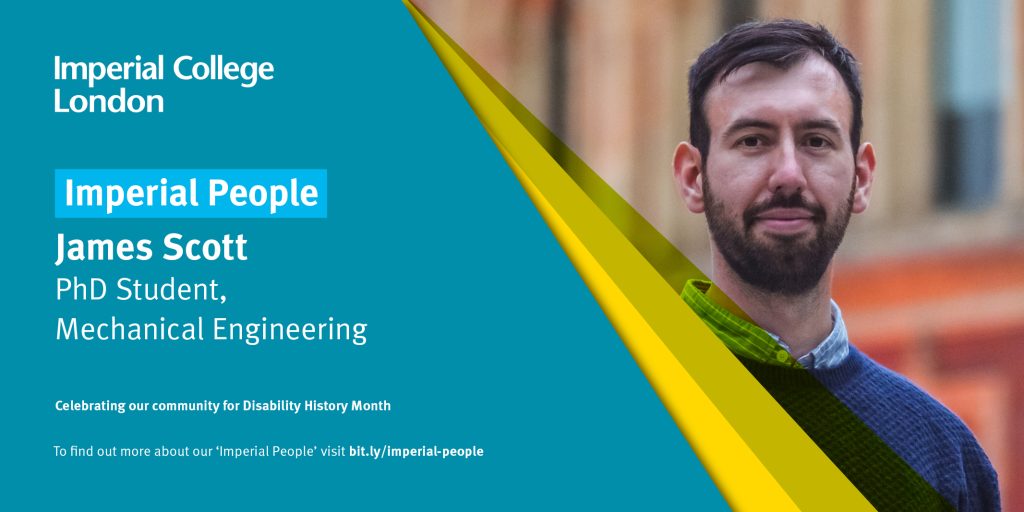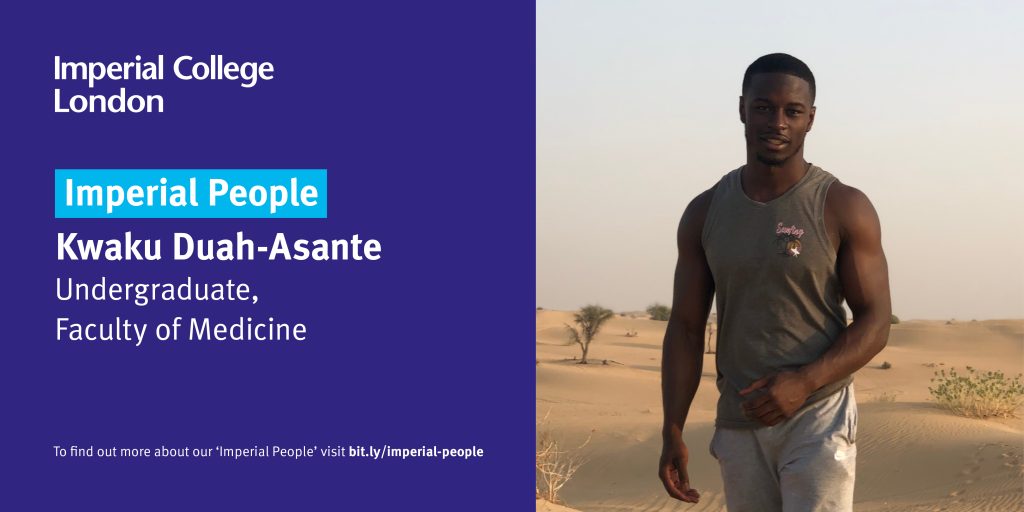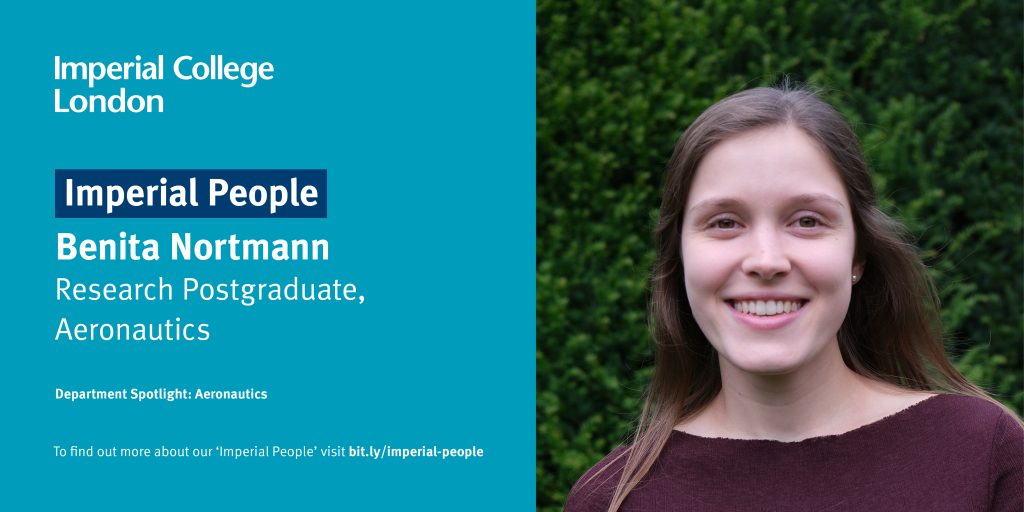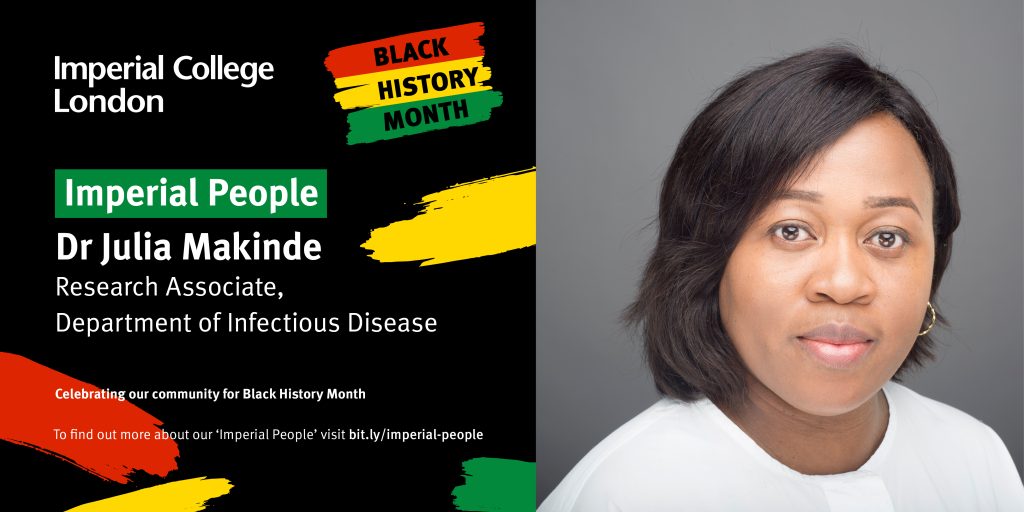“There’s such a welcoming group of people with a healthy attitude to lunch –and the idea that breaking bread builds communities.”
I completed a BSc in Biomedical Sciences at the University of Bath in 2018. This included a placement at the London School of Hygiene and Tropical Medicine where I published a paper. That experience was pivotal in deciding to be an immunologist.
In 2019, I joined Imperial as a research technician. I mainly characterise immune cells in different diseases, and also now contribute to imaging within the Inflammation Repair and Development (IRD) Section.
Outside of the laboratory, I volunteer with organisations promoting STEM fields to under–represented groups, including mentoring young girls and non-binary people through the Stemettes and celebrating Black voices with the Black in Immuno Hub.
Since 2021, I have been the technician for the Lloyd laboratory where I teach users how to operate some imaging equipment, assist members with their experiments, and offer wider technical support and some general laboratory administration. (more…)
